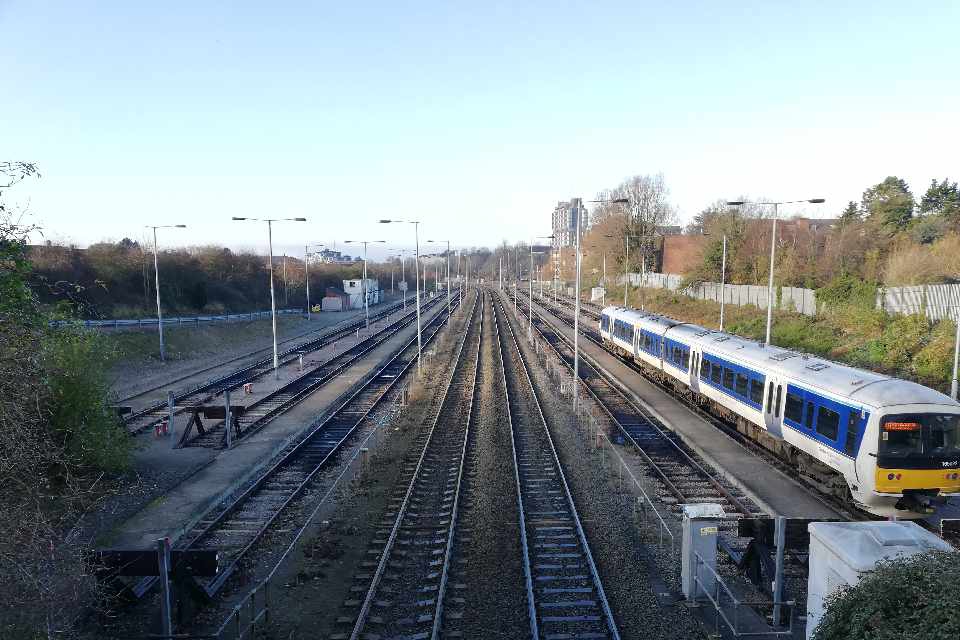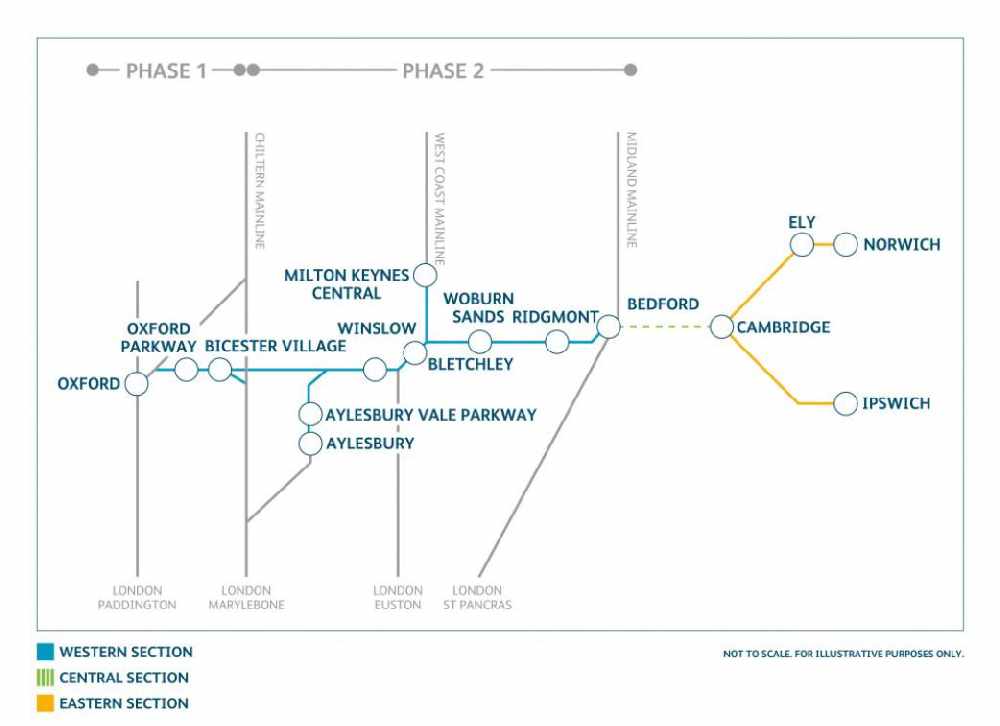
East West Rail are getting £760 million from the government, providing new links to Winslow and Aylesbury.
It's part of the delivery of phase two of the rail project, reinstating direct train services between Bicester and Bletchley for the first time since 1968 and ultimately linking Oxford to Cambridge.
The works between Bicester and Bletchley are expected to create 1,500 jobs. This phase of the project will include the construction of a new station at Winslow, as well as enhancements to existing stations along the route, including Bletchley.
Aylesbury is also due to be linked to the line, with track upgrades allowing trains to run from London Marylebone to East West through the town.
 (Map from Network Rail)
(Map from Network Rail)
By 2025, 2 trains per hour will run between Oxford and Milton Keynes via Bletchley.
Today’s announcement forms part of the government’s commitments to build back better from the coronavirus pandemic and level up transport infrastructure across the country by investing in rail connections that will boost economic growth, unlock new housing, and create jobs and opportunity.
Transport Secretary Grant Shapps said:
Restoring railways helps put communities back on the map, and this investment forms part of our nationwide effort to build back vital connections and unlock access to jobs, education and housing.
Returning these routes to their former glory, and progressing work to reopen even more lines and stations shows our commitment to levelling up journeys across the country as we build back better from the pandemic.
Simon Blanchflower, Chief Executive Officer at East West Railway Company, said:
We are delighted that the government has shown a big commitment to East West Rail and the Oxford-Cambridge arc with today’s investment decision. This funding will enable us to get on with the construction work that will connect communities who live on the East West Rail link.
We are committed to improving connectivity across the Oxford-Cambridge arc, and fully recognise our responsibility to ensure that it is delivered in a way that minimises disruption, supports the regional economy, maximises benefits and supports jobs across the region.



 Outcome of the Employment Tribunal Review
Outcome of the Employment Tribunal Review
 Easter bin collection date changes
Easter bin collection date changes
 Lynx Aylesbury Celebrates GB Selections
Lynx Aylesbury Celebrates GB Selections
 Heart of Bucks First Charity Tour
Heart of Bucks First Charity Tour
 TVP Closure Order in Wycombe
TVP Closure Order in Wycombe
 Locally based National Charity Invests in a Major Clinical Trial.
Locally based National Charity Invests in a Major Clinical Trial.
 Tesco shopper selects Buckinghamshire school to receive a £5,000 donation
Tesco shopper selects Buckinghamshire school to receive a £5,000 donation
 Thame Midsomer Walking Tours Return
Thame Midsomer Walking Tours Return












